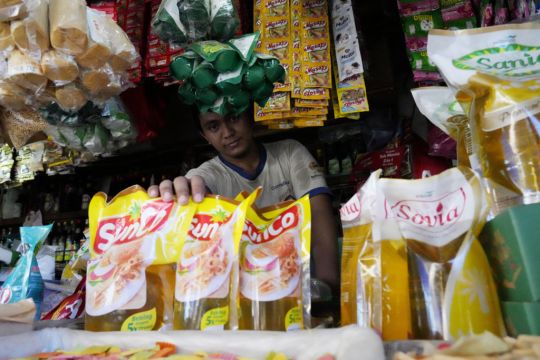Indonesia will ban exports of cooking oil and its raw materials to reduce domestic shortages and hold down skyrocketing prices, President Joko Widodo announced on Friday, a day after hundreds of people protested in the capital against rising food costs.
The ban begins next Thursday and will continue for an undetermined length of time, he said.
“I will continue to monitor and evaluate the implementation of this policy so that the availability of cooking oil in the country is abundant and at an affordable price,” Mr Widodo said in a statement.
The announcement came three days after the Attorney General’s Office announced a corruption investigation involving a senior Trade Ministry official and three palm oil executives.
Attorney General Sanitiar Burhanuddin said the ministry official is suspected of issuing export permits for crude palm oil and its derivative products that resulted in domestic shortages and sharply higher prices for cooking oil.
The government issued a policy earlier this year obligating all palm oil exporters to ensure that adequate supplies are available in the domestic market and that costs do not follow sharply rising international prices.
Hundreds of people marched in Jakarta on Thursday to protest against soaring food and oil prices. They demanded the government reduce prices of fuel and basic foods, including cooking oil.
Indonesia and Malaysia are the world’s largest exporters of palm oil, which plays an important role in their economies. They account for 85% of global palm oil production.







